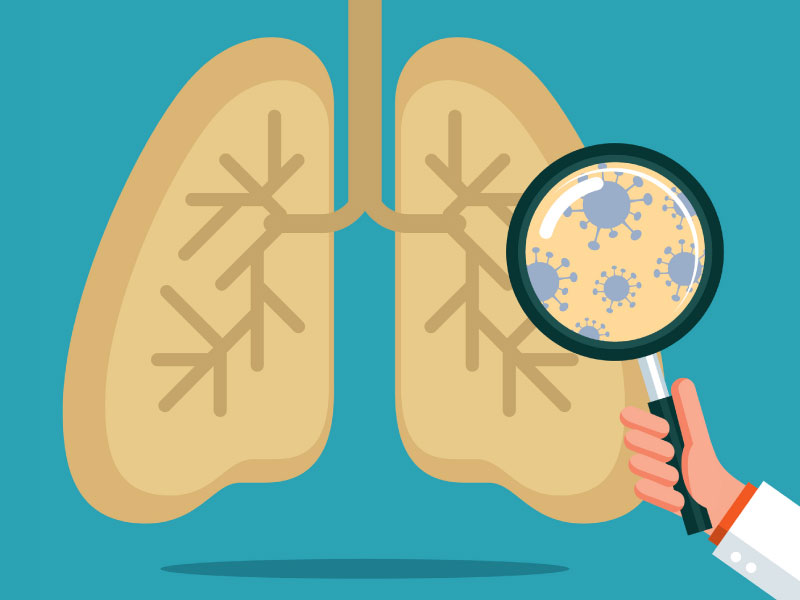These scans could help quickly detect COVID-19 in stroke patients
By American Heart Association News

Scans of the upper lungs that already are part of evaluating some stroke patients also could help save time in detecting COVID-19 earlier than traditional nasal swabs, new research shows.
Computed tomography angiogram, or CTA, scans and symptom questionnaires helped researchers detect COVID-19 with 83%; accuracy in people having a stroke caused by a clot, according to a small study published Thursday in the American Heart Association journal Stroke.
"Every second counts when treating a person experiencing a stroke," lead study author Dr. Charles Esenwa said in a news release. He is an assistant professor and a stroke neurologist at the Albert Einstein College of Medicine in New York City. "Conducting a CTA is already part of the stroke management process, and these scans provide an opportunity to assess the lungs for signs suggestive of COVID-19. Our team sought to determine if this already necessary scan could have a secondary use of identifying potential COVID-19 patients more quickly than a standard nasal swab COVID-19 test."
Researchers analyzed the records of people treated for ischemic stroke at three hospitals in the Bronx from March 1 to April 30, the height of the COVID-19 surge in New York City. In all, 57 patients received a CTA scan within 24 hours of being hospitalized.
The CTA scans were used to search the upper area of the lungs for signs of COVID-19 pneumonia. Researchers then compared the accuracy of using the CTA scans for COVID-19 diagnosis alone to the use in combination with patient-reported symptoms, such as cough and shortness of breath.
The study confirmed COVID-19-positive cases from nasal swab tests required by the Food and Drug Administration. It can take several days for results.
Researchers found the combination of CTA scans and symptom questionnaires diagnosed COVID-19 with 83%; accuracy before results were received from the traditional nasal swab tests. In all, 30 of the 57 patients in the study were positive for the virus.
The authors said diagnostic accuracy may have been higher because the study participants were in an area with higher geographic incidence of COVID-19.
Still, "since this analysis is much faster and at no extra cost, we hope it could be incorporated as a rapid diagnosis tool for patients with acute stroke," Esenwa said. "In addition, accurately diagnosing COVID-19 within hours, rather than the sometimes days wait time to receive the results from nasal swab tests, could help protect both patients and medical professionals."
If you have questions or comments about this story, please email [email protected].





